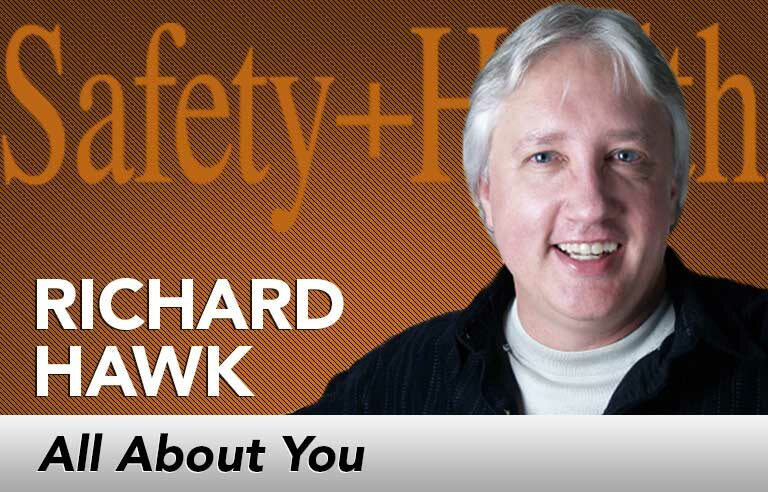All About You: Are you curious?

EDITOR’S NOTE: Motivating employees to work safely is part of the safety professional’s job. But who motivates the motivator? In this monthly column, veteran safety pro and professional speaker Richard Hawk offers his entertaining brand of wisdom to inspire safety pros to perform at their best.
“Why does the neighbor’s dog bark?” “How did the windows get ice on them?” “Where do babies come from?”
If you’re a parent, you’ve experienced the joy of hearing those types of questions frequently (sometimes incessantly) soon after your child learns to talk. Both of my children were curious creatures, and I remember having to explain to them everyday things that I had rarely questioned myself.
Most of the time it was fun. But even on the occasions when it got a bit tiring, I knew curiosity played a vital role in my kids’ development, so I answered each inquiry the best I could.
We adults should take a lesson from inquisitive children, because curiosity is vital at every age. Not only does learning about new things help us grow intellectually, but research shows that it also spices up our lives and even can help prevent age-related mental illness. Leonardo da Vinci, whom I consider a mentor even though he’s not alive, has been quoted as wanting to know everything. That statement may seem preposterous, but I believe what da Vinci meant is that everything is worth knowing. Curiosity was a driving force behind his genius.
How about you? Are you a curious creature? Do you pursue learning the why and what about topics outside of your profession and routine interests?
Curiosity has enriched my world view and helped me connect with people from many cultures. And one particular aspect can help you increase your influence as a safety and health professional: wanting to know details about the jobs and lives of people you meet – especially the folks you interact with at work.
Small talk breaks the ice, but it doesn’t mean much. Talking about the weather or a home team game is fine fodder for opening a conversation, but being curious about a person’s work, family, aspirations and other more personal items can generate insight that forms a bond. It also encourages employees to open up to you about work-related concerns and ideas – some that may be safety-related.
You may not be a mechanic, but learning what it takes to repair a pump and the details of its operation from a mechanic at your workplace will both increase your understanding of the device and create positive feelings in the person sharing his or her expertise.
Before I speak at a company, I find out everything I can about its history, products, leaders, values, etc. That’s helpful. More valuable, however, is hearing from the folks who work there. That’s when I get the “inside scoop” about the company’s culture and workings. Also, as I learn, I build bonds that help me in a variety of ways.
Being curious about people’s personal lives, too (without meddling), is a habit that can make you a better safety and health leader. The more your co-workers sense that you’re interested in them, the more likely they are to listen to you, speak freely and tell you what’s going on “in the field.”
Can you come across as an investigative reporter if you ask too much about a person’s personal life? Of course. As with any social skill, you need to be aware of your impact by paying attention to the other person’s reaction to your interest. But in general, I’ve found that most people appreciate efforts to learn about their life events and situations.
When I worked as a full-time safety professional, I’d regularly hang out in the break rooms at the power plant and construction site – mostly to get to know the employees better and find out what was going on in their work and home lives. Not only did I enjoy it, I also learned a lot about what was going on at the site. Plus, it gave me more credibility and influence as a safety and health pro. Being curious about other people’s lives can do the same for you.
This article represents the views of the author and should not be construed as a National Safety Council endorsement.
Richard Hawk helps companies around the world create more vibrant safety cultures by showing them how to make safety fun. As a professional speaker, author and musician, he also inspires employees to focus better and enlightens safety leaders about ways to increase their influence. To learn more about Richard, visit makesafetyfun.com.
Direct to your inbox: Sign up to be notified in email about new "All About You" columns.
Listen on Soundcloud or Stitcher
Post a comment to this article
Safety+Health welcomes comments that promote respectful dialogue. Please stay on topic. Comments that contain personal attacks, profanity or abusive language – or those aggressively promoting products or services – will be removed. We reserve the right to determine which comments violate our comment policy. (Anonymous comments are welcome; merely skip the “name” field in the comment box. An email address is required but will not be included with your comment.)

